Is peanut butter good for you? Two tablespoons per day can provide these health benefits
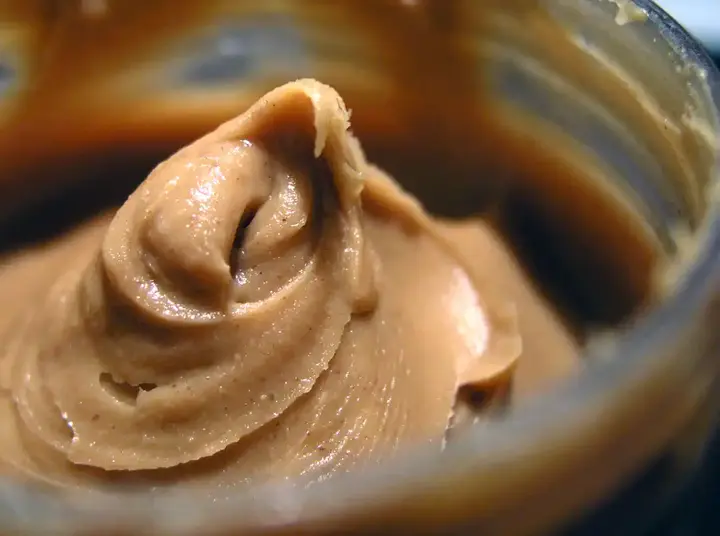
Peanut butter is an easy, filling and tasty food. But how healthy is peanut butter and is it good to eat it every day? Let's see what nutritionists say. Peanut butter is a staple in the pantries of many households around the world. Sweet and salty fat is delicious, saturating and easy to enjoy alone or with other foods. Peanut butter, made from ground roasted peanuts, is often favored because it is packed with protein and other nutrients. But is peanut butter actually useful? And is it good to eat them every day?
Show key points
- Peanut butter is a nutrient-rich food that provides protein, healthy fats, and essential minerals like calcium, magnesium, and folic acid.
- Incorporating peanut butter into a balanced diet can help with satiety and may contribute to heart health due to its monounsaturated fat content.
- Despite its health benefits, moderation is key, as excessive intake can lead to consumption of too much saturated fat.
- ADVERTISEMENT
- Choosing peanut butter with low added sugar and sodium—ideally under 5g of sugar and 100mg of sodium per serving—is recommended for a healthier option.
- While peanut butter doesn't need refrigeration, natural varieties may separate and require stirring before use.
- Peanut butter is generally safe unless you are allergic, in which case it can be life-threatening and require careful food handling.
- Studies suggest that regular consumption of nut butters may lower the risk of heart disease and type 2 diabetes when eaten in moderation.
Peanut butter feed
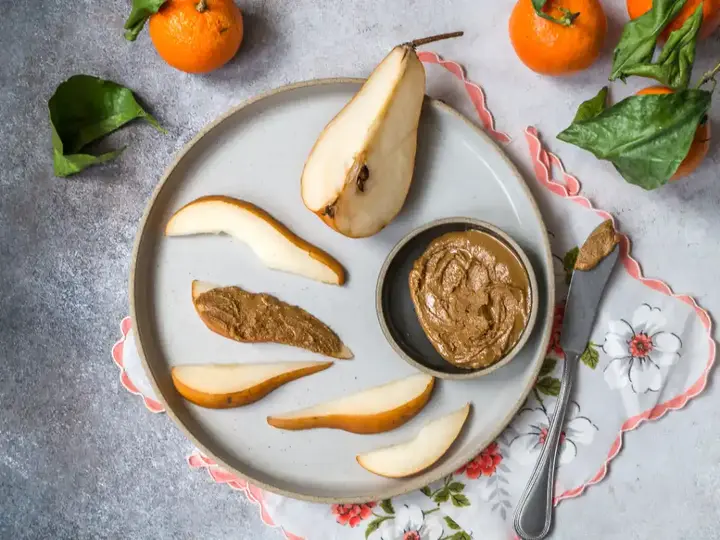
According to the USDA, one serving (two tablespoons) of standard store-bought soft peanut butter provides:
• 191 Calories
• 7 grams of protein
• 16 grams of fat
Recommend
• 7g carbohydrates
• 1.6g fiber
• 3g sugar
One serving of peanut butter also provides 16 mg of calcium, 54 mg of magnesium, 28 micrograms of folic acid and 136 mg of sodium, says Francis Largman Roth, a dietitian. The serving size of peanut butter is two tablespoons, which is enough to spread it on a sandwich or eat it with an apple or banana, for example. Most peanut butter brands are gluten-free and vegan, but always check the labels to be sure.
Health Benefits
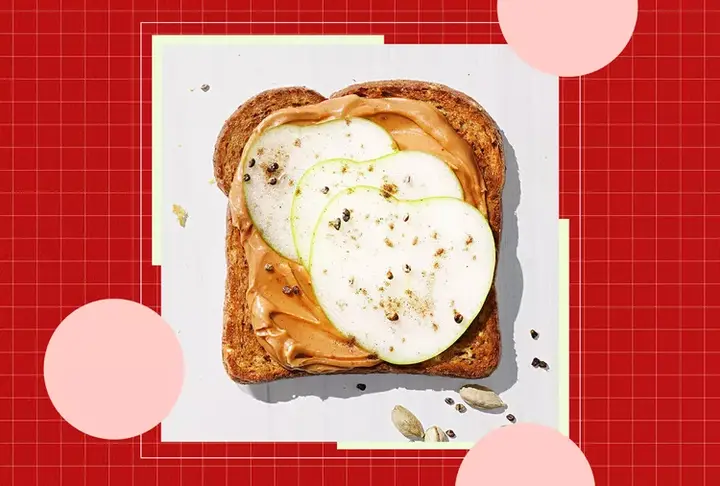
Peanut butter provides a number of benefits, especially when consumed as part of a balanced and healthy diet.
First, it's an accessible, inexpensive plant-based protein source, says Largeman Roth. One serving provides 7 grams of protein. Healthy adults should consume 0.8 grams of protein per kilogram of body weight per day – for the average adult, this is about 50 grams for basic nutritional needs, and in addition to protein, peanut butter provides plenty of healthy fats. "The majority of the fats in peanuts (and peanut butter) are heart-healthy monounsaturated fats," peanut butter is also a very filling food, which means it can help you feel full and satisfied for longer, especially when added to other foods, says Largeman Roth. Sweet and salty fat is also packed with nutrients and vitamins."Peanut butter provides minerals, including calcium and magnesium, as well as folic acid, a nutrient essential for a healthy baby," says Largeman Roth. In addition to its health benefits, peanut butter is easily portable and taken with you and has a long shelf life, making it an incredibly convenient option.
Health risks

Although some peanut butter brands contain higher amounts of sugar or sodium, peanut butter is generally still a safe and healthy option when consumed in moderation. "The only significant downside to peanut butter is that 1.8 percent of the population is allergic to peanuts, which can be life-threatening," says Largeman Roth. The sticky oily texture of peanut butter also makes it easy to spread and contaminate surfaces such as worktops, tables, desks, and door handles. "This affects not only the individual with allergies, but also their family, classroom and workplace," notes Largeman Roth.
Is peanut butter good or bad for cholesterol?

Peanuts are a plant food, so they don't contain any cholesterol," says Largeman Roth. Peanut butter contains a lot of heart-healthy unsaturated fatty acids, according to the USDA. "Peanuts and peanut butter are rich in oleic acid, a type of omega-9 fatty acid that helps lower bad cholesterol or bad cholesterol," says Largeman Roth.
Peanut butter doesn't contain any trans fat, according to the USDA, but it does contain some saturated fat. Saturated fats are considered "bad" fats because they may raise bad cholesterol and increase the risk of cardiovascular disease. The American Heart Association recommends getting only 5% to 6% calories from saturated fat — based on a 2,000-calorie diet, which is about 13 grams of saturated fat per day. Fortunately, there are only about three grams of saturated fat in one serving of standard store-bought peanut butter, which is well below the recommended daily limit. The American Heart Association (AHA) recommends paying attention to labels and looking for brands that contain less saturated fat.
Is it good to eat peanut butter everyday?
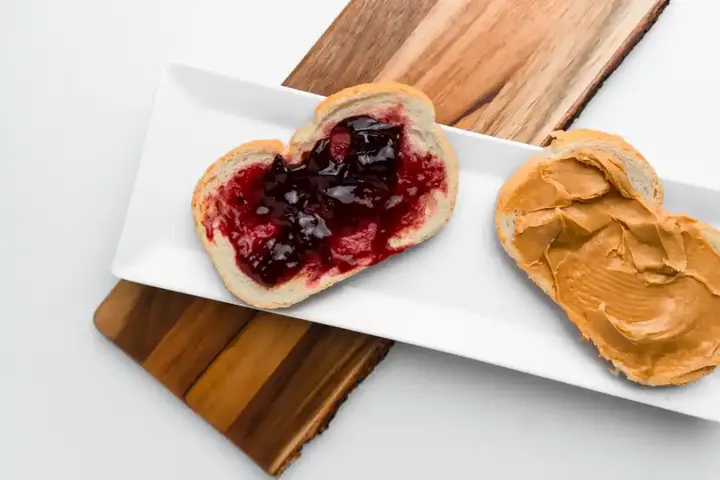
Yes, it's okay to eat peanut butter every day (in moderation), as we say Largeman Roth. This means adhering to the recommended serving size of two tablespoons, or about that amount. Eating peanut butter every day can become a problem if a person eats too much of it and exceeds the daily limit of saturated fat, according to the Cleveland Clinic. According to the American Heart Association, people who regularly eat nut butter have a lower risk of heart disease or type II diabetes compared to those who don't include it in their diet. While there's no shame in enjoying a spoonful of peanut butter straight from the jar, Largman Ruth recommends eating peanut butter with another food for a more fulfilling and nutritious snack. She suggests fruits and vegetables (such as apples, celery or bananas), oatmeal, whole-grain toast, yogurt or juices.
Can peanut butter get bad?

Yes, peanut butter can spoil. According to the USDA, you can keep a jar of unopened peanut butter in pantry at room temperature for six to nine months. After opening, you can keep peanut butter in pantry for two to three months.
Just be aware of the "best-by-the-way" dates, says Largeman Roth, and make sure you don't put a knife or a dirty spoon in the jar, which can contaminate peanut butter with germs and other ingredients that can make it spoil faster at room temperature.
Standard treated peanut butter often has stabilizers to prevent ingredient separation. If you choose natural peanut butter without these stabilizers, the oil may separate and rise to the top of the jar, which is normal. "Just stir before use," says Largeman Roth.
Should peanut butter be refrigerated?
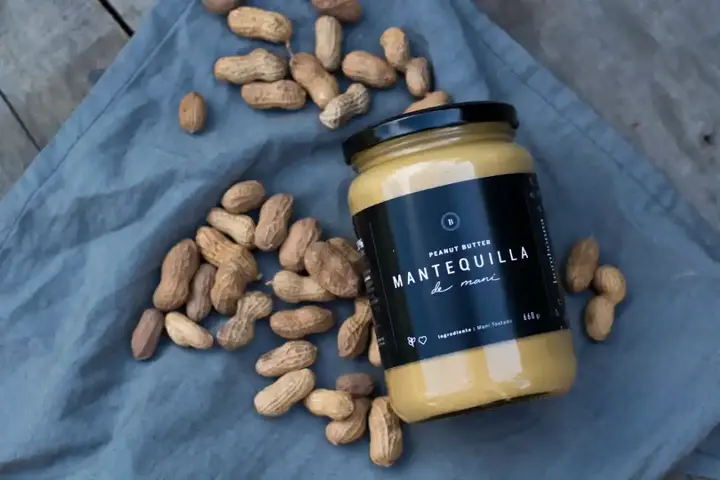
Technically, you don't need to refrigerate peanut butter, says Largeman Roth. "In fact, it becomes impossible to spread a lot of them if they are refrigerated." Largeman Roth says the fact that peanut butter doesn't require refrigeration and lasts a long time is another reason why it's a budget-friendly and convenient option.
Which peanut butter is the healthiest?

At the grocery store, you can find a wide range of brands and different types of peanut butter. While the primary ingredient is peanuts, they may contain different amounts of other added ingredients (such as sugar or salt), which affect texture and taste. Largeman Roth suggests that the healthiest option for peanut butter is peanut butter that contains less than 5 grams of added sugar per serving and less than 100 milligrams of sodium per serving. Low-fat peanut butter may seem healthier, but you're likely replacing those healthy fats with more carbohydrates. According to the Cleveland Clinic, low-fat peanut butter may contain the same amount of calories or higher because it often contains additional ingredients (usually sugar or salt) to improve taste after eating it.








